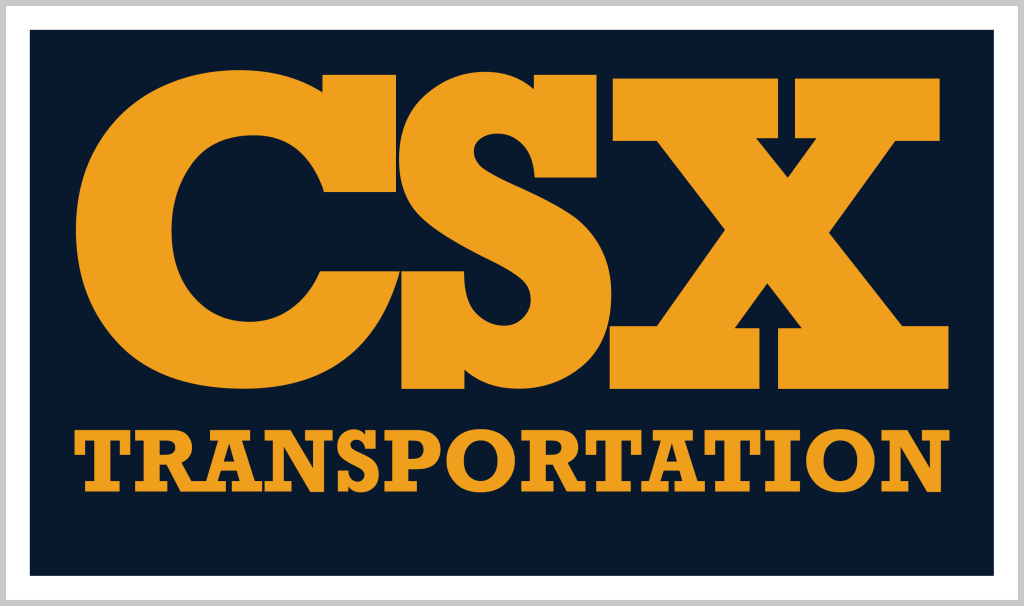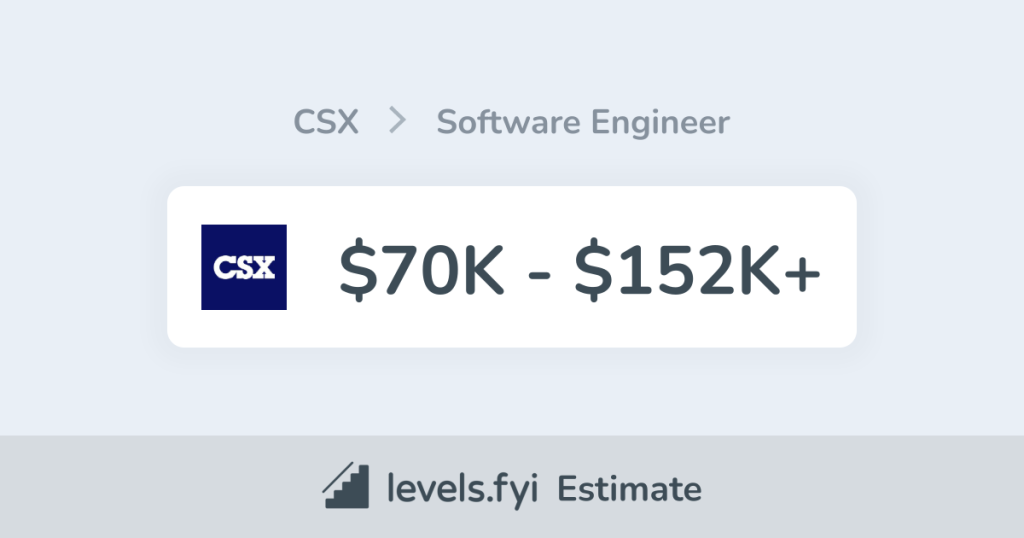
CSX Transportation, often shortened to CSX, is a major player in the freight railroad industry, operating throughout the Eastern United States and parts of Canada. Here’s a quick overview:
- Freight Railroad Leader: CSX boasts a vast network of rail lines, connecting major population centers and facilitating the transportation of essential goods across the country.
- Focus on Efficiency: They strive to provide reliable and efficient rail transportation solutions for their customers in various industries.
- Commitment to Safety: Safety is a core value at CSX, and they are dedicated to maintaining a safe working environment for employees and communities.
What are the selection and Interview process of CSX?
The selection process at CSX Transportation can vary depending on the specific role (conductor, locomotive engineer, mechanical technician), location, and level of experience. Here’s a roadmap for what you might encounter:
1. Application: Submit your resume and cover letter through CSX’s careers website.
2. Screening and Review: Recruiters will assess applications to identify candidates with the qualifications and experience outlined in the job description. They’ll focus on skills relevant to the railroad industry and the specific role (e.g., mechanical aptitude for technician roles, strong work ethic for all roles).
3. Interview Stages (may vary):
- Phone Interview (for some roles): An initial conversation with an HR representative or hiring manager to discuss your background, motivations, and interest in the railroad industry, particularly CSX’s focus on safety and operational excellence.
- Computerized Testing (for some roles): You might encounter online assessments to evaluate basic math skills (important for many CSX roles), mechanical comprehension (especially for mechanical technician roles), or a short personality assessment to gauge your cultural fit within CSX’s safety-conscious environment.
- In-Person Interview(s): These interviews may involve one or more rounds with hiring managers from relevant departments (e.g., operations, mechanical services) and potentially safety professionals depending on the role. Here’s what you might encounter based on the role:
- Train Crew Positions (Conductor, Locomotive Engineer): Be prepared for in-depth discussions about your understanding of railroad operations, safety regulations, and signal systems. You might encounter scenario-based questions to assess your decision-making skills in operational settings. Additionally, some positions may require vision and hearing tests.
- Mechanical Technician Roles: Expect discussions about your mechanical aptitude, experience with maintaining and repairing locomotives or railcars (depending on the role), and ability to work effectively in a hands-on environment. You might encounter questions about specific tools or troubleshooting techniques.
- General Interview Questions: Behavioral interview questions using the STAR method (Situation, Task, Action, Result) will be used to assess your relevant skills and experiences across various roles.
4. Additional Assessments (for some roles): Some positions, particularly train crew roles, may involve additional assessments such as a physical ability test or a drug and alcohol screening.
5. Offer and Background Check: Successful candidates will receive a job offer contingent on a background check.
Tips for Success:
- Research CSX Transportation thoroughly, understanding their rail network, focus on safety and efficiency, and the vital role they play in the American economy.
- Tailor your resume and cover letter to highlight relevant skills and experiences that demonstrate a strong fit for the specific role you’re applying to.
- Be prepared for discussions about the railroad industry or relevant technical knowledge (for mechanical technician roles) and your commitment to safety.
- Practice your behavioral interview skills using the STAR method.
- Project a positive attitude, strong work ethic, and a willingness to learn (valuable in all roles!), excellent communication and interpersonal skills, and a focus on safety.
By understanding CSX’s selection process and showcasing your qualifications and commitment to safety and efficiency, you can increase your chances of landing an interview and a rewarding career at this leading railroad transportation company.
How many rounds of interview conducted in CSX?
The number of interview rounds at CSX Transportation (CSX) can vary depending on the specific role, location, and even the time of hiring [1, 2]. However, based on information found on job boards and employee reports, here’s a possible range:
- Possible Range: Two to four interview rounds [1, 2].
Here’s a possible breakdown of the interview stages at CSX:
- Initial Application: Submit your resume, cover letter, and you might encounter a web-based assessment about your skills or suitability for the role (often for some technical positions) [2].
- Phone Interview (possible): A recruiter might conduct a brief phone interview to discuss your experience and interest in CSX [2].
- In-Person Interviews (one to three rounds): These could involve discussions with [2]:
- Hiring Manager or Team Members: They will assess your qualifications, experience (if any), and fit for the specific role (e.g., technical skills for mechanical or engineering positions, customer service skills for conductor roles).
- Division Leaders or Subject Matter Experts (possible for some roles): You might meet with division leaders or specialists for a more in-depth discussion about the role, responsibilities, and CSX’s culture (more likely for experienced hires or higher-level positions).
What is the salary for freshers in CSX?

I have a gathered information on exact salaries for freshers at CSX isn’t advertised on their careers website [3]. Here are ways to get a better idea of the range for entry-level positions:
- Salary Websites: Explore salary websites like Glassdoor or Indeed. Search for “CSX Transportation” and filter by “entry-level” or “freshers” positions in your target location to get a sense of the range for similar roles (e.g., conductor trainee, mechanical technician, administrative assistant).
- Salary Negotiation: Be prepared to discuss salary during the offer stage, especially if you have relevant experience or a strong educational background in engineering, mechanics, business administration, or a related field. Research salary ranges beforehand and highlight your skills and willingness to learn to justify your desired compensation.
Here are some additional tips for landing a job at CSX:
- Research CSX: Learn about their areas of expertise in freight rail transportation across North America [3]. Understand their focus on safety, service, and sustainability [3]. This demonstrates your genuine interest during the interview.
- Highlight Relevant Skills and Experience: Tailor your resume to showcase skills and experiences relevant to the specific role you’re applying for. This could include technical skills (for mechanical or engineering positions), communication skills, a strong work ethic, a willingness to learn, and a passion for the railroad industry (if applicable).
- Prepare for Behavioral and Technical Questions: Be prepared to answer both behavioral questions using the STAR method (Situation, Task, Action, Result) to showcase your problem-solving skills and achievements, and technical questions relevant to the role (if applicable).
By following these steps, you’ll gain a better understanding of the potential interview process and salary range for freshers at CSX. Remember, the specific details can vary depending on the position you apply for, your qualifications, and the company’s needs at the time of hiring. During the interview process, if there’s an opportunity to ask questions, you can inquire politely about the typical interview structure for the role you’re interested in.
Top questions Asked for freshers in CSX
While there isn’t a one-size-fits-all list for interview questions at CSX, here’s a breakdown of possible questions for freshers, along with tips for finding more specific information:
General Interview Questions for Freshers:
- Tell me about yourself and your career goals. (This is a common opening to allow you to showcase your background and aspirations)
- Why are you interested in CSX and the railroad industry? (Research the company’s role in transportation and logistics, and their focus on safety)
- What are your strengths and weaknesses? (Be honest but focus on framing weaknesses as areas for development)
- Describe a time you faced a challenge and how you overcame it. (Highlight your problem-solving skills)
- Do you have any questions for us? (Prepare insightful questions to show your interest and initiative)
Possible Role-Specific Questions (Depending on the Position):
- Operations Roles (e.g., Train Conductor, Yardmaster): Be prepared for questions about your ability to follow procedures meticulously, attention to detail, and understanding of safety regulations. You might also encounter questions about your teamwork skills and ability to work effectively under pressure in potentially physically demanding situations.
- Customer Service Roles: These roles might involve questions about your communication skills, ability to resolve customer inquiries efficiently, and a willingness to go the extra mile for customer satisfaction.
- Technical/Engineering Roles: For these roles, anticipate questions about your technical knowledge relevant to the specific role (e.g., mechanical aptitude, basic understanding of train operations), problem-solving abilities, and eagerness to learn new technologies.
Tips for Finding More Specific Questions:
- CSX Careers Website: Explore the careers section of CSX’s website, particularly under “FAQs” or “Interview Tips.” They may have resources for new hires.
- CSX Interview Reviews: Look for interview reviews on websites like Glassdoor to get insights from past interviewees, keeping in mind that experiences may vary.
- Informational Interviews: Consider reaching out to CSX employees on LinkedIn for informational interviews (brief conversations to learn more about the company and specific roles).
How to apply for job in CSX?

1. Search for Open Positions:
- Head to CSX’s careers website: CSX’s careers page.
2. Target Your Search:
- Utilize filters to find “Entry Level” or “Associate” positions that align with your skills and interests. You can also filter by Location, Department (e.g., Operations, Customer Service, Technical/Engineering), or Keyword.
3. Apply Online:
- Once you discover a relevant opportunity, click “Apply Now” and follow the instructions. You’ll likely need to submit:
- Resume: Tailor your resume to highlight relevant skills and achievements from academics, projects, or internships (if applicable). Focus on skills like communication, teamwork, problem-solving, a willingness to learn, and a strong work ethic. Quantify your achievements whenever possible.
- Cover Letter (Optional, but Recommended): Craft a compelling cover letter that showcases your genuine interest in CSX and the specific role. Tailor it to the position and highlight why you’re a strong fit (mention transferable skills if experience is limited). Express your interest in the railroad industry and safety (if applicable).
4. Tips:
- Highlight Transferable Skills: Even without direct railroad industry experience, focus on transferable skills like communication, teamwork, problem-solving, and a willingness to learn.
- Research CSX’s Operations: Gain a basic understanding of CSX’s operations, the role of train conductors or yardmasters (if applying for those roles) to demonstrate your interest.
- Show Your Safety Awareness: Safety is paramount in the railroad industry. Highlight your understanding of the importance of safety regulations and procedures.
By combining this information with research on CSX and the specific role, you can be well-prepared to answer a variety of interview questions and increase your chances of landing an entry-level position!
Say goodbye to the hassles of bike ownership! MotoShare.in offers affordable rentals, whether you need a scooter for errands, a bike for a road trip, or a reliable ride to explore new cities.

 Starting: 1st of Every Month
Starting: 1st of Every Month  +91 8409492687
+91 8409492687  Contact@DevOpsSchool.com
Contact@DevOpsSchool.com
